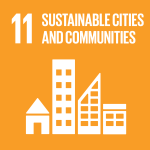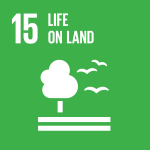Honduras has historically experienced the effects of climate variability, particularly the El Niño/La Niña phenomenon which has a significant impact on the distribution of rainfall and the national economy.
The impacts can be severe. In 2015, the government declared a national emergency when an episode of El Niño saw the country experience intense droughts, especially in the dry corridor area, with more than 817,000 people affected. At the same time, the country faced one of the largest outbreak episodes of bark weevil in the last fifty years, affecting more than 800,000ha of pine forest (more than a third of the country's total pine forest cover).
According to the Intergovernmental Panel on Climate Change (IPCC) Fifth Assessment Report, there is high confidence that the El Niño-Southern Oscillation (ENSO) will continue to be the dominant mode of natural climate variability in the 21st century, along with global influences, and that the regional rainfall variability it causes is likely to intensify.
With finance from the Adaptation Fund, the main objective of the project 'Ecosystem-Based Adaptation at Communities of the Central Forest Corridor in Tegucigalpa' was to increase the climate resilience of the most vulnerable communities of the Central Forest Corridor and the adaptation capacity of its municipalities with an emphasis on ensuring livelihoods and the continuity of the provision of ecosystem goods and services for the city of Tegucigalpa and its surroundings.
To achieve this objective, this project (2018-2023) focused on three interrelated components:
(1) Strengthening of local and community governance under scenarios of climate change and climate variability;
(2) Ecosystem-based adaptation measures and technologies for building resilience in the Central Forest Corridor; and
(3) Strengthening of knowledge management systems, information and monitoring of adaptive capacity.
Level of intervention:- Community
- Municipality
- National
Key collaborators:- Country Office
- Local Governments
- National Governments
- Non-Governmental Organizations
- United Nations Development Programme (UNDP)
Implementing agencies and partnering organizations:- Adaptation Fund
- United Nations Development Programme (UNDP)
Funding source:Adaptation Fund
Financing amount:US$4,036,590
Project dates: 2018 - 2023
Expected outcomes
Result 1: Strengthen the CBC Platform to implement ecosystem-based adaptation processes through territorial planning
1.1 Strengthened coordination and decision-making spaces for the sustainable management of the natural resources of the CBC, including measures for the effective participation of women and indigenous peoples
1.2 Regulations related to the management of natural resources applied in the CBC
1.3 Municipal Climate Change Adaptation Plans prepared and validated
1.4 Operational proposal of a financing scheme for adaptation measures to Climate Change in the CBC prepared and validated
Result 2: Ecosystem-based adaptation measures and technologies designed and implemented to increase community resilience and their livelihoods in the CBC, promoting gender equity and active participation of young people
2.1 Pine forest areas affected by pests and fires in the CBC restored to safeguard ecosystem goods and services and the livelihoods of communities
2.2 Strategic forest areas restored by natural regeneration through effective protection mechanisms against fires, pests, and land use change
2.3 Climate change adaptation measures and technologies implemented to optimize the use of water and forest resources
Result 3: Generation, systematization, and use of climate change knowledge and information to contribute to research, capacity-building, monitoring, and informed decision-making
3.1 Applied research carried out on the links between climate change, pests, fires and adaptation measures in the CBC
3.2 ONCCDS strengthened for the management of information and knowledge on adaptation to climate change
3.3 Monitoring system against pests and forest fires operating with community participation schemes and articulated to an early warning system in the CBC
3.4 Knowledge and experiences of the project systematized and communicated
Feb-2025
Operational closure
Surrounded by mountains with large extensions of forest, the Central Forest Corridor (CBC) surrounds the capital of Honduras, Tegucigalpa in the department of Francisco Morazán, providing different ecosystem services and livelihoods to the population, with an important emphasis on the supply of water for communities within the corridor and also for the capital (Central District).
The approximate population in the 14 municipalities of the CBC is estimated at 1,427,699 inhabitants (more than 16% of the total population of the country). In three CBC municipalities (Ojojona, Santa Ana and Lepaterique) there are residents who belong to the Lenca indigenous people.
According to data from the 2014 forest map of the Forest Conservation Institute (ICF), the CBC has an extension of approximately 186,525 ha, with 102,786 ha of forest cover, which is equivalent to 55% of the total area of the corridor. Of this extension of forest cover, approximately 56% (57,547 ha) is pine forest and the rest is broadleaf, mixed and deciduous (dry) forest. This percentage of forest is constantly subjected to natural and anthropogenic pressures that prevent its natural development, and jeopardizes the ability to provide ecosystem benefits to the entire population that lives around and within them. The impacts of climate change only aggravate this situation.
Considering that almost half of the territory of the CBC belongs to sub-basins that provide more than two thirds of the total water in the capital, the need to work on ecosystem-based adaptation through integrated water resource management is evident, recognizing the role of hydrographic basins, forests and vegetation in the regulation of water flows and its supply for the construction of resilience in the face of climate change.
Therefore, the importance of being able to address schemes of compensation mechanisms in water resources (eg payments for ecosystem services, etc.), to help land users, producers or ranchers to conserve forests in basins that supply water to the capital, protect biodiversity and provide livelihoods for the population.
With this, the main objective of the project was to increase the climate resilience of the most vulnerable communities of the CBC and the adaptation capacity of its municipalities with an emphasis on ensuring livelihoods and the continuity of the provision of ecosystem goods and services for the city.
Result 1: Strengthen the CBC Platform to implement ecosystem-based adaptation processes through territorial planning
1.1 Strengthened coordination and decision-making spaces for the sustainable management of the natural resources of the CBC, including measures for the effective participation of women and indigenous peoples
1.2 Regulations related to the management of natural resources applied in the CBC
1.3 Municipal Climate Change Adaptation Plans prepared and validated
1.4 Operational proposal of a financing scheme for adaptation measures to Climate Change in the CBC prepared and validated
Result 2: Ecosystem-based adaptation measures and technologies designed and implemented to increase community resilience and their livelihoods in the CBC, promoting gender equity and active participation of young people
2.1 Pine forest areas affected by pests and fires in the CBC restored to safeguard ecosystem goods and services and the livelihoods of communities
2.2 Strategic forest areas restored by natural regeneration through effective protection mechanisms against fires, pests, and land use change
2.3 Climate change adaptation measures and technologies implemented to optimize the use of water and forest resources
Result 3: Generation, systematization, and use of climate change knowledge and information to contribute to research, capacity-building, monitoring, and informed decision-making
3.1 Applied research carried out on the links between climate change, pests, fires and adaptation measures in the CBC
3.2 ONCCDS strengthened for the management of information and knowledge on adaptation to climate change
3.3 Monitoring system against pests and forest fires operating with community participation schemes and articulated to an early warning system in the CBC
3.4 Knowledge and experiences of the project systematized and communicated
Monitoring and evaluation at the project level will be carried out in accordance with UNDP requirements contained in the UNDP Operations and Programs Policies and Procedures. and in the UNDP Evaluation Policy . Additional specific monitoring and evaluation requirements of the Adaptation Fund will also be implemented in accordance with its Monitoring and Evaluation Policy and other relevant policies. In addition, the project will engage in other monitoring and evaluation activities deemed necessary to support adaptive management of the project.
The project results indicated in the project results framework of the Project Document will be monitored annually and periodically evaluated during the execution of the project to ensure that the project achieves those results.
Supported by Component 3, the monitoring plan will facilitate learning and ensure that knowledge is widely shared and disseminated to support scaling up and replication of project results.
*The UNDP country office will retain all monitoring and evaluation records for this project – including annual Project Implementation Reports (PPR), the project’s Mid-term Review, and Final Evaluation – for up to seven years after the project's economic closure to support ex post evaluations conducted by the UNDP Independent Evaluation Office and the Office of Independent Evaluation of the Adaptation Fund.
Inception Report (2019)
Mid-Term Review (2021)








